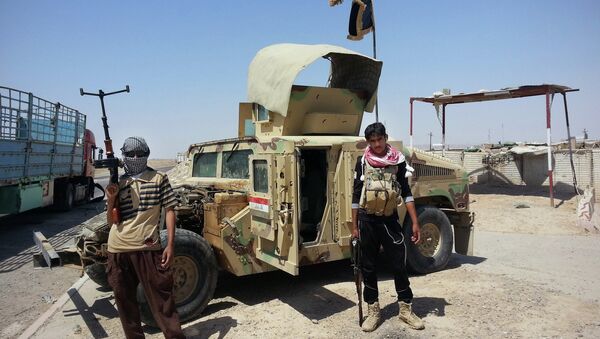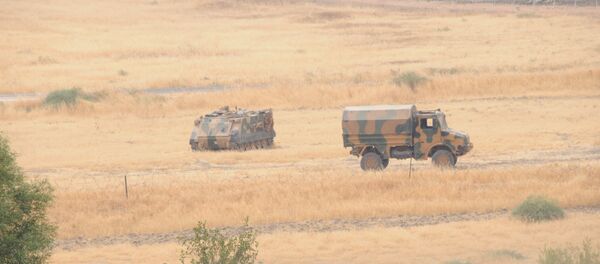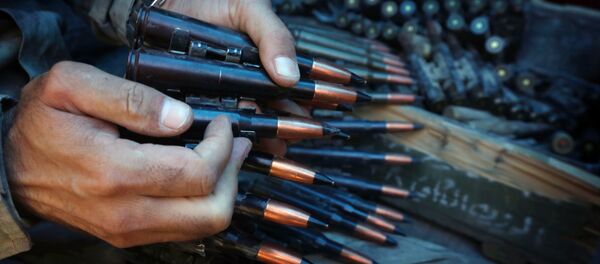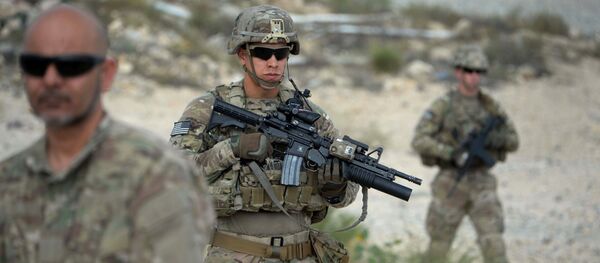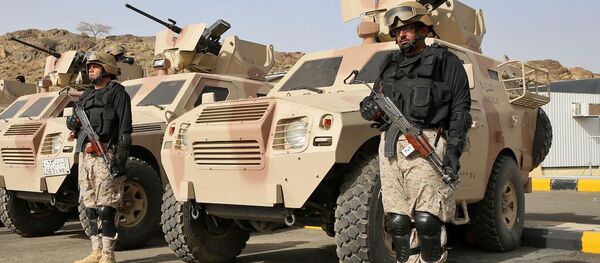The US army "did not have accurate, up-to-date records on the quantity and location" of equipment earmarked for the Iraqi army, according to a government audit dated September 2016, obtained following a Freedom of Information (FoI) request.
The military transfers were under the auspices of the Iraq Train and Equip Fund, which was awarded $1.6 billion by the US Congress in 2015 to aid Iraqi government troops fighting against Daesh.
The revelation follows numerous reports that US weapons deliveries to the Middle East ended up in the hands of terrorists.
Last September, a commander of the Islamist terrorist group Jabhat Fateh Ash Sham (formerly known as the Al-Nusra Front) told Germany's Kölner Stadt-Anzeiger newspaper that the group's fighters had received weapons and expertise from the US, Qatar, Saudi Arabia and Israel, in their fight against the Syrian government.
"Maybe [they were delivered] also through the Kurds – [Masoud] Barzani [President of the Iraqi Kurdistan Region] also had commercial contacts with Daesh, even though the Kurds are fighting with the group. The weapons could leak through the Iraqi Kurds," Truevtsev said.
Turkish Kurds have accused Iraqi Kurds of cooperating with Daesh and the Turkish government. In 2015, Mehmet Ali Ediboglu, former deputy of the Turkish opposition Republican People's Party (CHP), said that some Turkish and Iraqi businessmen had been financing Daesh via the purchase of oil on the black market.
"ISIL holds the key to these deposits [in Raqqa] and together with a certain group of persons, consisting of those close to Barzani and some Turkish businessmen, they are engaged in selling this oil," Ediboglu alleged.
"Our ally Kuwait has become the epicenter of fundraising for terrorist groups in Syria," The US Treasury's Under Secretary for Terrorism and Financial Intelligence David Cohen remarked in 2014.
Professor Alexander Vavilov of the Russian Ministry of Foreign Affairs' Diplomatic Academy told RT that the US arms deliveries are an example of "political schizophrenia."
"The situation in Kuwait is really complicated. There are forces in the country trying to use terrorists for their own purposes. But Washington has to turn a blind eye to the actions of the Kuwaiti authorities because Kuwait has too much geostrategic importance for the Americans. What is happening can be characterized by the words of Vladimir Putin – it is political schizophrenia."
He added that the record arms deal signed by Donald Trump in Riyadh last week could also end up arming Islamic terrorists in Iraq and Syria.
"Donald Trump recently signed a multibillion-dollar contract for the supply of weapons to Saudi Arabia, but there are no guarantees that these weapons will remain with the Saudis," Vavilov said.
"Islamic State [Daesh] commanders undoubtedly have links with the Iraqi army, this is not surprising," Vavilov said.
"Washington made a big mistake by throwing the military experts of Saddam's army, people who know how to fight professionally, out on the street."
Such a situation makes it all the more important that weapons deliveries are strictly controlled so as to not fall into the hands of terrorists. However, given the US conflict of interests in the Middle East, it seems unlikely that lessons will be learned.
"Unfortunately, we can't expect that the American leadership will draw any conclusions. The fact is that the new White House administration continues the US' former course of shaking up the situation in the Middle East, despite the fact it talks about the fight against terrorism."
"In practice, the US has double standards; a typical example is its attitude towards Iran. Although Tehran does a lot to stabilize the situation in the region and actively fights terrorism, Washington makes absolutely groundless accusations that the Iranian government supports terrorism," Vavilov pointed out.

